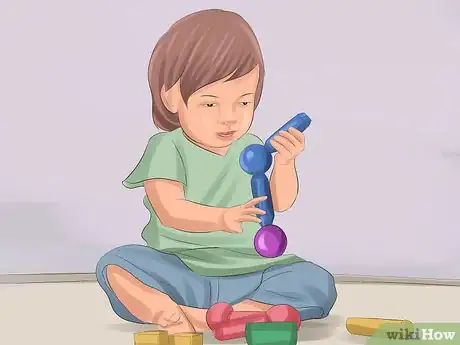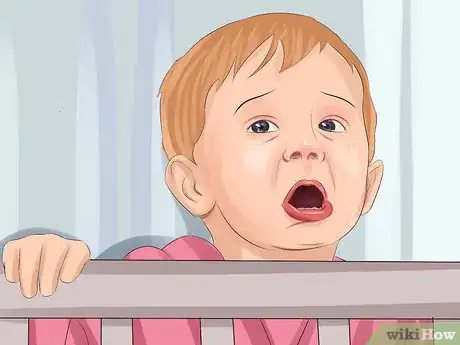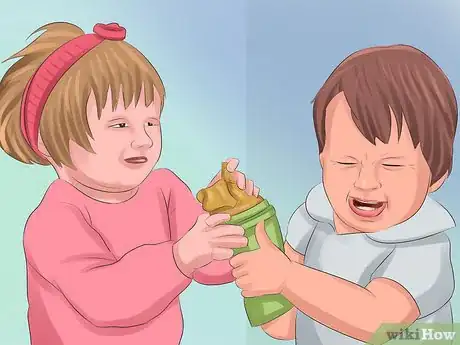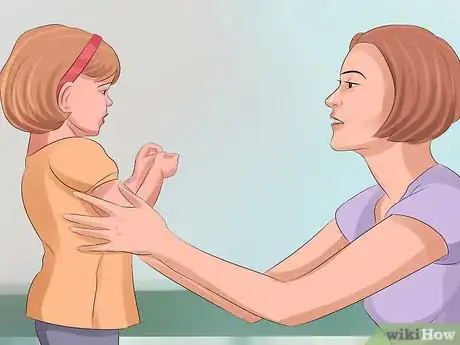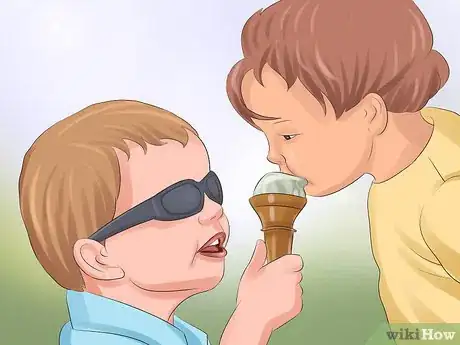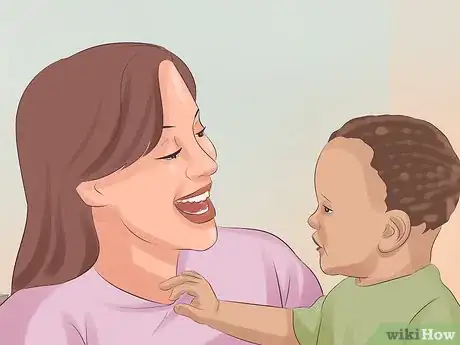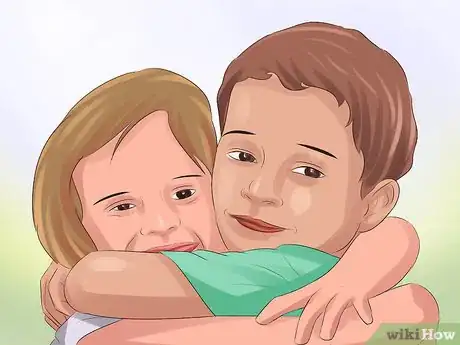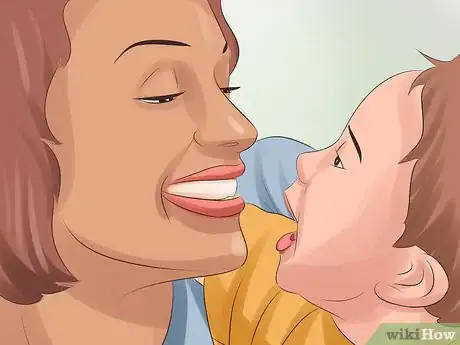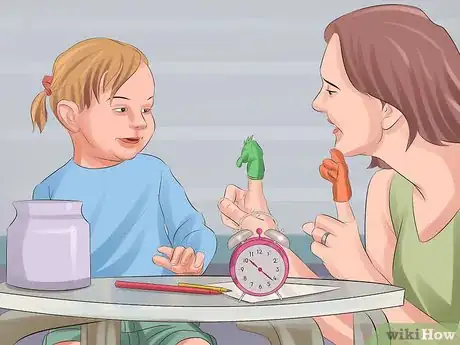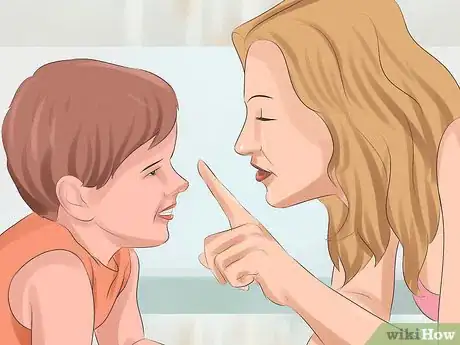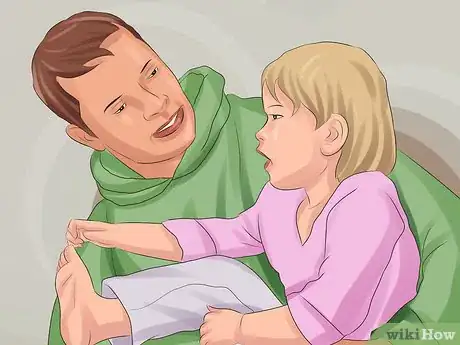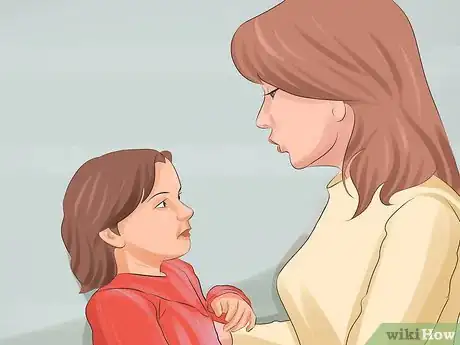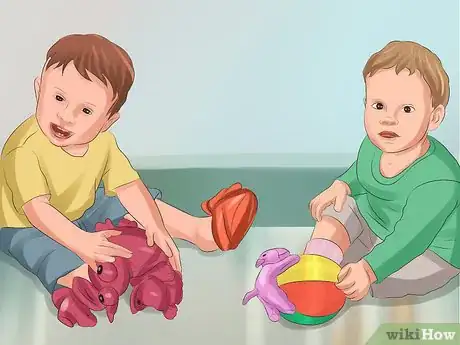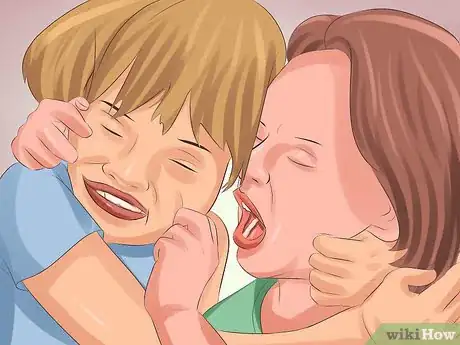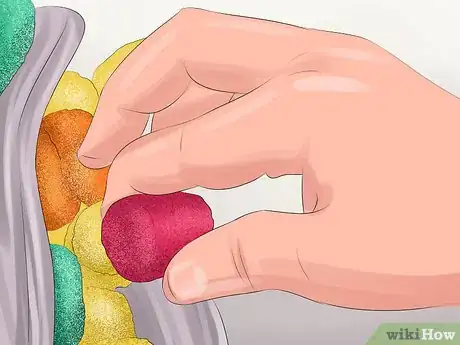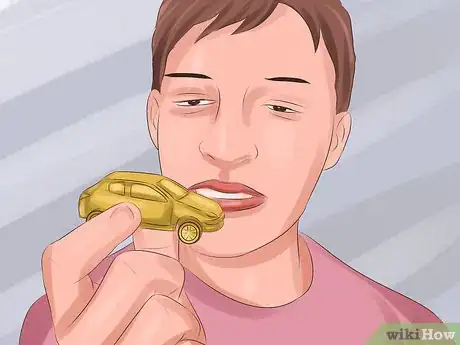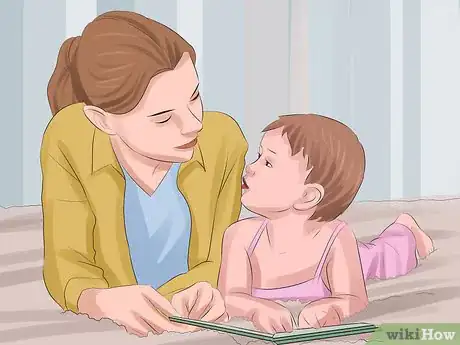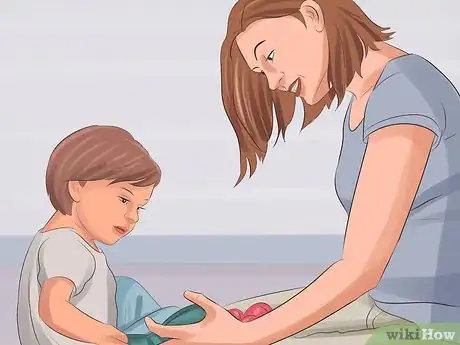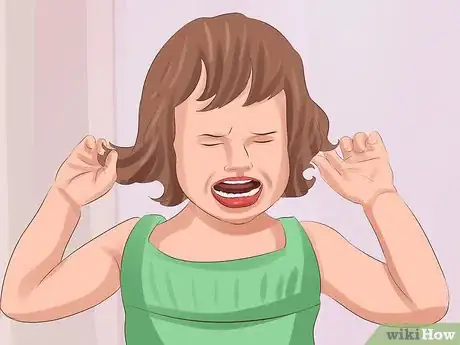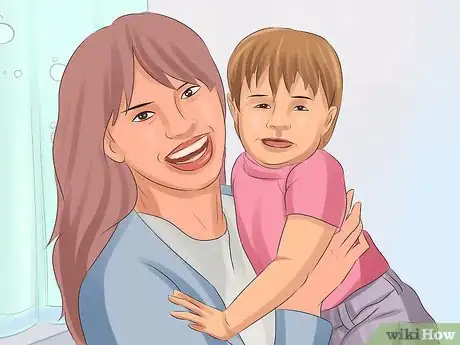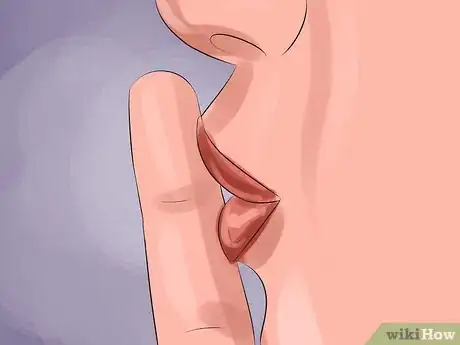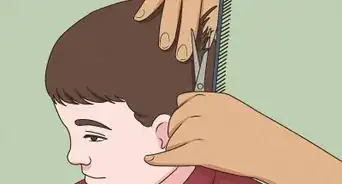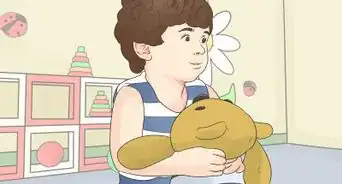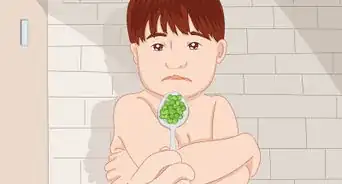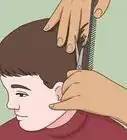X
wikiHow is a “wiki,” similar to Wikipedia, which means that many of our articles are co-written by multiple authors. To create this article, volunteer authors worked to edit and improve it over time.
This article has been viewed 62,382 times.
Learn more...
Toddlers are just beginning to learn about the concepts of independence and ownership. Sharing, at this point, can be very difficult territory. If you are struggling with toddlers who fight constantly over toys, don't worry – their behavior is normal and developmentally appropriate. The situation will improve as your children grow, but in the meantime, you can take certain steps to preserve your sanity and teach your toddlers how to get along well with others.
Steps
Part 1
Part 1 of 4:
Understanding Toddler Behavior
-
1Know that toddlers are working toward independence. One and two year olds are working to master gross motor skills like walking, running, and jumping; they are also picking up fine motor skills like using a spoon, drinking from a cup, and unfastening buttons. These new skills go hand and hand with a developing sense of self: the idea that they are independent beings who can control their own actions. These are normal and exciting developments, but for parents and teachers, the toddler stage is a tricky one. Toddlers will engage in many behaviors that are not appropriate or acceptable (including fighting over toys), and adults have to respect their developmental stage while teaching them to respect reasonable limits.
- According to Erik Erikson, the psychologist who developed a widely-used theory of psychosocial development, toddlers are in the midst of resolving a particular developmental crisis: “Autonomy (Independence) vs. Doubt (or Shame).” In other words, they are working to resolve the tensions between self confidence and self control.
-
2Accept that toddlers are highly emotional. Emotions tend to run high during the toddler years. They feel tremendous excitement about all of the new and different things they are able to do, but, at the same time, they have to deal with “separateness.” Parents may leave them to play independently or expect them to occupy themselves temporarily, and this separation can be scary.Advertisement
-
3Understand that normal toddler development leads to fights over toys. The concept of independence, of course, hinges on the basic understanding of “me.” Once toddlers understand the distinction between themselves and others, they also begin to focus on the concept of ownership: “mine” as opposed to “not mine.” Fighting over toys is a completely normal manifestation of this emerging knowledge. Sharing threatens toddlers' perceived ownership of particular items.
Advertisement
Part 2
Part 2 of 4:
Teaching the Concept of Sharing
-
1Explain sharing to your toddlers. Emphasize that sharing is temporary: another child may take a turn with his or her toy, but eventually, it will be returned.
- Note that sharing does not take away ownership. It's fine to make this explicit for toddlers. Say, “that is your truck. You can let someone else play with your truck, but it is still yours.”
-
2Practice sharing. Before you expect toddlers to share their toys with other children, they can practice sharing with you. Ask toddlers, from time to time, to hand you their favorite toys. Let them learn to be patient. Return their toys after a designated interval, and praise them for sharing. This will help toddlers distinguish between borrowing and taking.
-
3Emphasize the positive aspects of sharing. Point out that sharing a toy is generous and kind. In addition, point out that other children will also share their toys. Everyone will get to play with new and different items.
-
4Prepare toddlers in advance for situations that will involve sharing. Talk to children about what will be expected during play dates and at preschool. Let them know ahead of time that they will be sharing toys.
-
5Teach the importance of friendship. Explain what friendship is, and teach toddlers that friendships involve sharing toys and playing together without fighting.
-
6Observe your toddlers' behavior. It helps to be aware of what a particular toddler is struggling with. Does the toddler tend to grab toys away from other children, or does he or she struggle with other children taking toys? Teach toddlers to deal with these issues as best they can.
-
7Lead by example. Let toddlers see you sharing your possessions with others. If they ask to play with something of yours (assuming that it is safe and not easily damaged), let them. Emphasize the fact that sharing is temporary, and you know you will get the item back soon.
Advertisement
Part 3
Part 3 of 4:
Avoiding Conflict
-
1Avoid unnecessarily stressful situations. Once you have observed situations involving sharing, you should be able to determine which issues seem to cause trouble for particular toddlers. Is one child especially protective of a particular toy? Consider letting him or her put that toy away somewhere, off limits, during a play date.
-
2Choose your play time wisely. Plan to let toddlers play together when they are rested and when they have been fed. Hungry, tired, cranky toddlers are guaranteed to fight over toys. Limit play time to one to two hours for toddlers; anything longer is expecting too much from a young child.
-
3Set clear rules. Whenever toddlers are playing together, it is best to have clear, simple rules in place. Any toys that are not meant to be shared should be put away elsewhere. All remaining toys should then be shared, with no exceptions. Consider setting a timer for popular toys, and enforce consistent limits.
-
4Offer alternatives. When a child has to give up his or her favorite toy temporarily, offer interesting replacements. If you give a toddler something fun to do, he or she may be too distracted to argue about the original toy.
- Generally, it's best to have lots of choices available. Have enough options around to have multiple alternatives for each toddler.
-
5Teach toddlers to discuss sharing verbally. Instead of grabbing toys from other children, toddlers should be taught to ask for them. Model appropriate language for toddlers: “may I have a turn, please?”
-
6Encourage cooperative play. If toddlers play a game that requires more than one person, whether it's a ball game or a board game, they will be less likely to fight.
Advertisement
Part 4
Part 4 of 4:
Dealing with Fights
-
1Try not to get involved immediately. When squabbles break out between toddlers, it's tempting to step in immediately. It's better, however, to give toddlers the chance to learn and grow. Let them try to resolve the conflict themselves.
-
2Remember the three “C”s: compassion, conviction, and consequences. If the toddlers cannot resolve the conflict themselves – as will often be the case – try to keep these three basic concepts in mind. Have compassion for what toddlers are experiencing and struggling with. Respect their convictions, but emphasize the fact that their actions have consequences.
-
3Control grabbing. When toddlers continue to fight over toys, it's best to separate them and give them time to cool down. Do not allow them to continue snatching toys back and forth. Wait until everyone is calm, and then try to piece together what happened – not so much to determine who is “guilty” but to find an acceptable solution to the problem.
- To separate children, simply hold their hands firmly and lead them to separate areas. Ask them to stay put, and insist that they obey. Make sure everyone is calm before you allow them to leave their separate corners.
-
4Remove the object of dispute. If you cannot find a suitable solution, or if the toddlers involved are too upset to discuss the issue, remove the toy. Take it from them as gently and politely as possible, and then put it out of their reach. Ignore any shrieking or crying that results.
-
5Make decisions with (rather than for) toddlers. When you step in to resolve arguments, you should give reasons for your actions. Allow toddlers to express themselves, and listen to them. Try to involve them in the decision-making process.
-
6Validate toddlers' feelings. In general, it's best to approach fights over toys with compassion and understanding. Let toddlers know that their feelings are valid. It's fine to say, “I know it makes you sad and angry to share this truck, and that's okay. It's fine to be sad and angry. But you need to be a good friend and let Johnny have a turn.”
-
7Deal with emotions before you try to teach a lesson. If one or more of the toddlers is very upset, you need to take time to calm that child down and validate his or her feelings before you attempt to teach a lesson about sharing. When children are upset, they cannot focus well on learning; they will just get more upset if you try to scold or lecture them.
-
8Refrain from taking sides. Remain neutral, and don't pay too much attention to which child started the argument. Even if one toddler is clearly wrong, it's not going to help much to discuss it. Focus on finding a solution.
-
9Resist the urge to label children. Even if one particular toddler is frequently the cause of fights over toys, it helps nothing to label him or her as a “bully” or “meanie.” You should not call children “selfish” or “greedy,” and you should never call them names. Doing so may affect their self esteem and confidence. Furthermore, if you call a child a bully, he or she may start believing it; this will only lead to more of the behavior that you are trying to stop.
-
10Enforce consequences. Depending on the situation, you can try enforcing ten to fifteen minutes of quiet time (placing toddlers in their cribs works well for this) or removing the toy in question.
-
11Praise toddlers when they comply. When toddlers are calm and cooperative again, offer lots of praise. Give them hugs and congratulate them for learning to calm themselves down and work together.
Advertisement
References
About This Article
Advertisement
